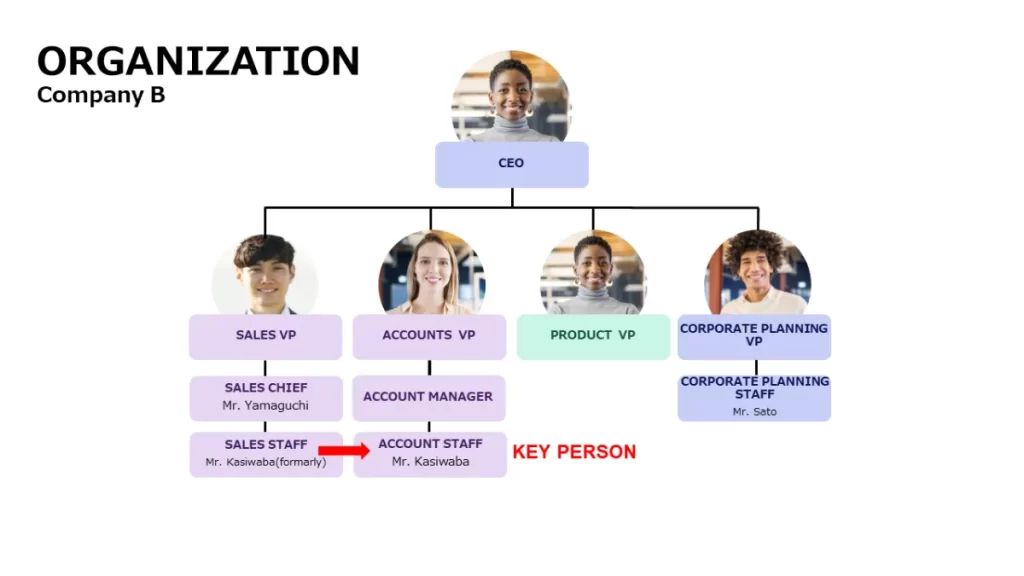
Doing business with Japanese companies can be a complex process, especially when it comes to gaining approvals. The unique hierarchical structure and collective approach of Japanese companies often lead to confusion and prolonged negotiations with foreign counterparts.
This article aims to shed light on the decision-making process in Japanese enterprises to help overseas companies navigate these waters.
- Hierarchical Corporate Structure
- Emphasis on Collectivism
- Consensus and Harmony Lead to Prolonged Discussions
- Lack of Approval Authority at the Frontlines
- Case Study: Navigating Complex Decision-Making at B Company
- Situation
- The Way Forward
- Conclusion
Hierarchical Corporate Structure
Japanese companies tend to have a hierarchical organizational structure. Clear lines are drawn between supervisors and subordinates, with upper management making major decisions and subordinates responsible for information gathering and following instructions. Understanding this hierarchy is essential for effective negotiation.
Emphasis on Collectivism
Japanese culture emphasizes group collaboration and harmony. Individual decision-making is often discouraged, and consensus is sought within the team. This perspective shapes how decisions are made and approved within a company.
Consensus and Harmony Lead to Prolonged Discussions
The strong tendency to value consensus and harmony may be the main reason negotiations or projects take longer in Japan. Recognizing this aspect helps foreign businesses plan accordingly and set realistic timelines.
Lack of Approval Authority at the Frontlines
It is common for employees interacting with other companies not to have approval authority. Finding the actual decision-makers and understanding the approval route becomes crucial. Many foreign companies tend to approach frontline staff with sales pitches, but this alone does not lead to effective results.
Further details on this issue will be provided in the Case Study below. Being aware of this fact can save time and avoid misunderstandings.
Case Study: Navigating Complex Decision-Making at B Company

Situation
Imagine you are working for a software company, Company A, and you want to propose a sales promotion tool for consideration to a Japanese enterprise, Company B, a medium-sized company with 100 to 500 employees. You got acquainted with a representative from Company B, Mr. Sato, who had inquired about your services. However, discussions within the company seem to have stalled, and the consideration does not seem to be progressing.
The Way Forward
Upon conducting detailed hearings, you discover that the accounting division holds more power than the sales division, and the company’s current atmosphere does not allow for budget allocation toward tool implementation. However, insight from the sales department’s section chief, Mr. Yamaguchi, indicates that one of the accounting departments was the sales department. His name is Mr. Kashiwaba. Fortunately, he is close to Mr. Yamaguchi so if Mr Kashiwaba finds this tool efficient, this consideration must progress. Then you set the meeting with Mr. Yamaguchi and Mr. Kashiwaba to negotiate.
In such complex scenarios, it is essential to approach not only the departments comparing the product but also engage with the user and purchasing departments. This would involve identifying whether they are positively or negatively inclined and understanding the power dynamics within the company. If a department with influence like the accounting division is showing resistance, finding allies that can influence the decision may be key. Demonstrating the product to the accounting department, with Mr. Kashiwaba’s support, may be an excellent way to gain support.
Conclusion
Understanding the approval process in Japanese companies is vital for successful business engagements. By recognizing the hierarchical structure, the value placed on collectivism, the importance of finding the actual decision-makers, and the tendency for prolonged negotiations, foreign companies can foster better relationships and achieve desired business outcomes.
